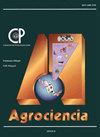评估农业和畜牧业生产系统的可持续性
IF 0.5
4区 农林科学
Q4 AGRICULTURE, MULTIDISCIPLINARY
引用次数: 0
摘要
巩固哥伦比亚领土上的和平进程需要确定国家和国际组织所促进的农业和畜牧业生产系统的相关性,作为哥伦比亚革命武装部队(哥伦比亚革命武装力量)前战斗人员重新编入的一种经济选择。位于哥伦比亚La Guajira市Fonseca市Pondores地区的Nueva Colombia(新哥伦比亚)农场提出的系统就是这种情况。为了回答“Nueva Colombia农场的生产系统是否可持续?”,我们对所使用的五个系统(玉米[Zea mays L.]、木薯[Manihot esculenta Crantz]、大蕉[Musa x paradisiaca L. var. Hartón]、养牛和家禽养殖)进行了定性农业生态评估。生产者、技术顾问和研究人员参与了评估,目标是建立一个可行性基线和标准,以确定分配资源的便利性,以确保系统的连续性。结果表明,Nueva Colombia农场位于一个非常干燥的热带森林生活区。评估结果显示,大蕉和木薯的可持续性中等,玉米的可持续性较弱。至于动物生产系统,我们发现,养牛不是一个可持续的系统,因此,它的经营是不可行的,而家禽养殖是中等可持续的。我们的结论是,不建议继续养牛,应将资源重新分配给改善家禽养殖系统。农业系统需要采取措施,增加作物的特定和空间多样性,以及它们的抗逆性和土壤中有机质的比例。本文章由计算机程序翻译,如有差异,请以英文原文为准。
ASSESSMENT OF THE SUSTAINABILITY OF AGRICULTURAL AND LIVESTOCK PRODUCTION SYSTEMS
Consolidating the peace process in Colombian territory requires determining the relevance of the agricultural and livestock production systems promoted by national and international organisms as an economic alternative in the reincorporation of Revolutionary Armed Forces of Colombia (FARC) ex-combatants. Such is the case with the systems proposed in the Nueva Colombia (New Colombia) farm, located in the Pondores area of the Fonseca municipality in La Guajira, Colombia. In order to answer the question “Are the production systems of the Nueva Colombia farm sustainable?”, we carried out a qualitative agroecological assessment of five systems used (maize [Zea mays L.], cassava [Manihot esculenta Crantz], plantain [Musa x paradisiaca L. var. Hartón], cattle ranching, and poultry farming). Producers, technical consultants, and researchers participated in the assessment, with the goal of establishing a viability baseline and criteria to determine the convenience of allocating resources for the continuity of the systems. The results show that the Nueva Colombia farm is located in a very dry tropical forest life zone. The assessment shows moderate sustainability for plantain and cassava crops and weak sustainability for maize. As for the animal production systems, it was found that cattle ranching is not a sustainable system and that, therefore, its operation is not viable, while poultry farming is moderately sustainable. We concluded that it is not advisable to continue cattle production, and that the resources should be reallocated towards improving the poultry farming system. The agricultural systems require the implementation of practices that increase the specific and spatial diversity of crops, as well as their stress tolerance and the proportion of organic matter in soil.
求助全文
通过发布文献求助,成功后即可免费获取论文全文。
去求助
来源期刊

Agrociencia
农林科学-农业综合
CiteScore
0.50
自引率
33.30%
发文量
51
审稿时长
18-36 weeks
期刊介绍:
AGROCIENCIA is a scientific journal created and sponsored by the Colegio de Postgraduados. Its main objective is the publication and diffusion of agricultural, animal and forestry sciences research results from mexican and foreign scientists. All contributions are peer reviewed. Starting in the year 2000, AGROCIENCIA became a bimonthly and fully bilingual journal (Spanish and English versions in the same issue). Since 2007 appears every month and a half (eight issues per year). In addition to the printed issues, the full content is available in electronic format.
 求助内容:
求助内容: 应助结果提醒方式:
应助结果提醒方式:


